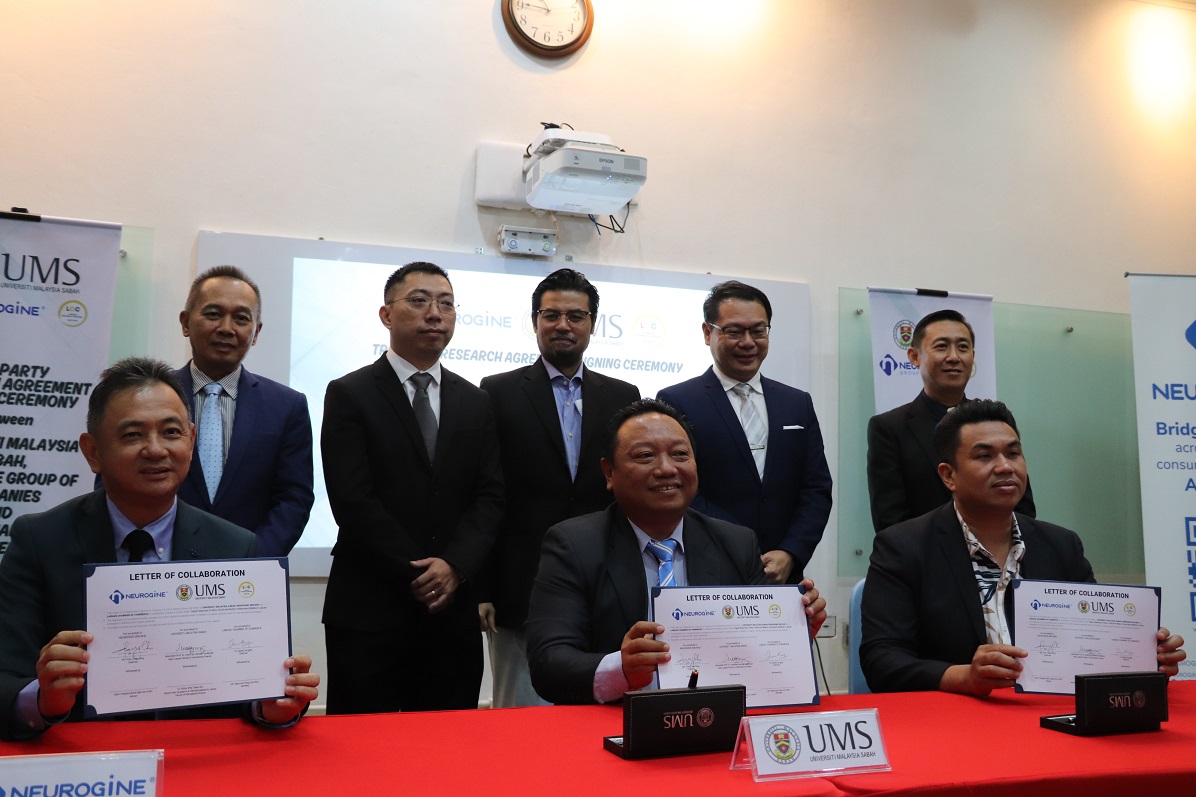
Universiti Malaysia Sabah (UMS) continues to actively implement the Knowledge Transfer Programme (KTP) as part of its mission to disseminate knowledge to the community.
Most recently, UMS, through the Centre for the Promotion of Knowledge and Language Learning (PPIB), conducted a KTP initiative focusing on Political Literacy and Democratic Citizenship Education for students at North Borneo University College (NBUC).
PPIB Dean and Project Leader, Assoc. Prof. Dr. Lai Yew Meng, stated that the program successfully enhanced the participants' political literacy and awareness of democratic citizenship, particularly among the youth.
“This program, which commenced in September 2023, was carried out through a series of training modules and activities aimed at imparting knowledge about democracy and the constitution via lectures, training sessions, and assessments among NBUC students.
“The organizers hope this inaugural program and its modules will continue to increase political literacy and awareness among Sabah’s youth, aligning with the philosophy of nation-building in Malaysia.
“This effort also supports one of the Ministry of Higher Education’s (KPT) 2024 focus areas, which is to empower communities and industries through knowledge transfer and sharing programs,” he explained.
Meanwhile, NBUC’s Senior Assistant Vice-Chancellor, Assoc. Prof. Dr. Steward G. Stephen, remarked that the program directly benefited participants from the Faculty of Security and Governance at NBUC by deepening their understanding of political literacy and democratic citizenship.
Additionally, one of the participants, End Andron Rizaly, expressed his appreciation for the program, emphasizing its importance in helping youth and students enhance their understanding of politics, democracy, and the Federal Constitution.
“I hope this program will continue so that awareness among youth and students can be further enhanced,” he said.
The program’s closing ceremony celebrated the participants by presenting certificates of participation and recognizing special categories such as the most cheerful participant, best male participant, and best female participant.
The event also featured UMS academics who served as speakers and facilitators, including Assoc. Prof. Dr. Anantha Raman Govindasamy, Assoc. Prof. Dr. Mohd Azri Ibrahim, Dr. Kavitha Ganesan, and Dr. Shaffarullah Abdul Rahman.
Other contributors included Dr. Budi Anto Mohd Tamring, Dr. Amy Azuan Abdullah, Dr. Mohd Hatib Ismail, and Mohammad Aqmal Hafidz Musa.




 Neurogine Group of Companies, a digital transformation, technology and service provider in Southeast Asia, has collaborated with Universiti Malaysia Sabah (UMS) to establish a living technological laboratory in Labuan.
Neurogine Group of Companies, a digital transformation, technology and service provider in Southeast Asia, has collaborated with Universiti Malaysia Sabah (UMS) to establish a living technological laboratory in Labuan.
 The Borneo Marine Research Institute (IPMB) of Universiti Malaysia Sabah (UMS) has been officially recognized as a Higher Education Centre of Excellence (HiCoE) for its expertise in producing high-value marine fish fry.
The Borneo Marine Research Institute (IPMB) of Universiti Malaysia Sabah (UMS) has been officially recognized as a Higher Education Centre of Excellence (HiCoE) for its expertise in producing high-value marine fish fry.